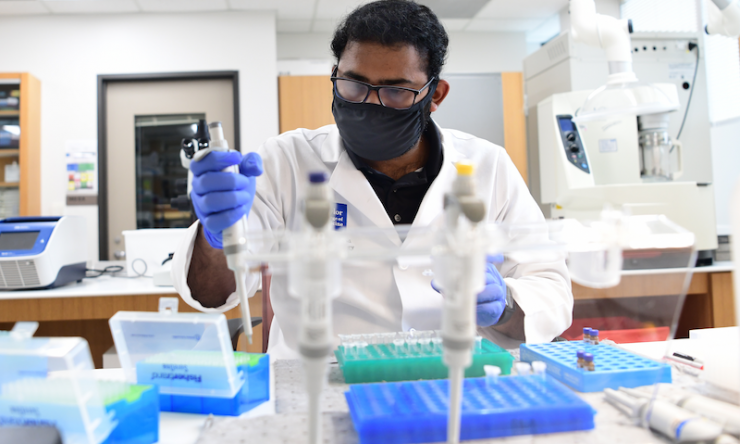NIH award supports diverse researchers in All of US Research Program
Baylor College of Medicine has received more than $1 million from the National Institutes of Health to engage researchers from diverse backgrounds, including those from underrepresented groups, in utilizing the All of US Research Program's data resources to advance precision medicine.
The All of US Research Program is a historic effort to collect data from 1 million or more people living in the United States to support a wide range of scientific discoveries. The goal of the program is to advance research that may lead to better health for all. Diversity is one of the core values of the program, which seeks to include participants from different races, ethnicities, age groups and regions of the country. The Baylor program aims to ensure researchers using All of Us data in their studies also reflect such diversity.
As part of the effort to engage researchers from diverse backgrounds, including those from underrepresented groups, in using All of Us data, Baylor will host All of US Evenings with Genetics seminars, modeled after the Evenings with Genetics seminars hosted by the Department of Molecular and Human Genetics, at universities across the country. The seminar series will introduce the All of US Research Program to biomedical researchers and students from diverse backgrounds, including those from underrepresented groups, and show them how to use the data in a variety of fields, including medicine, psychology, nutrition and education.
“The All of US Evenings with Genetics program will engage students who may not have considered research as a career,” said Dr. Debra Murray, co-director of the Office of Community Engagement and Diversity, assistant professor in the Department of Molecular and Human Genetics and co-investigator of the Baylor program. “We hope to inspire more students to use the All of US data to work with faculty and engage in research earlier in their academic careers.”
Baylor also will host an annual conference for faculty from diverse backgrounds, including those from underrepresented groups, to establish a framework of collaboration and training using the All of US data platform. The conference will provide long-term support to researchers and enhance the productivity of current postdoctoral trainees and early career faculty members. Conference attendees will develop multidisciplinary research projects with a foundation in the All of Us Research Program. As part of the summit, participants will be able to apply for seed awards and external pilot awards to fund additional collaborations and projects. These projects can serve as stepping stones to manuscripts and grant proposals.
“This program embraces the diversity of participants of the All of Us Research Program by fostering the same diversity among the scientists who will lead us in the discoveries on this enormous dataset,” said Dr. Brendan Lee, professor and chair of the Department of Molecular and Human Genetics, Robert and Janice McNair Endowed Chair in Molecular and Human Genetics at Baylor and principal investigator of the award.
Susan Fernbach, co-director of the Office of Community Engagement and Diversity and assistant professor in the Department of Molecular and Human Genetics, and Laura Rosales, administrator in the Department of Molecular and Human Genetics, are co-investigators of the program at Baylor.
“Our community engagement partners provide crucial support to help deliver on the promise of All of Us,” said Dr. Josh Denny, CEO of the All of Us Research Program. “Through their continued commitment to the program, they fortify our network of trusted community organizations, provide a vital sounding board to shape our activities and direction, lend their expertise to overcome communities’ distrust of research, motivate diverse communities to enroll and remain engaged with our program and support diverse researchers doing research in All of Us.”
This work is supported under NIH funding award OT2 OD031932. All of Us is a service mark of the U.S. Department of Health and Human Services.










